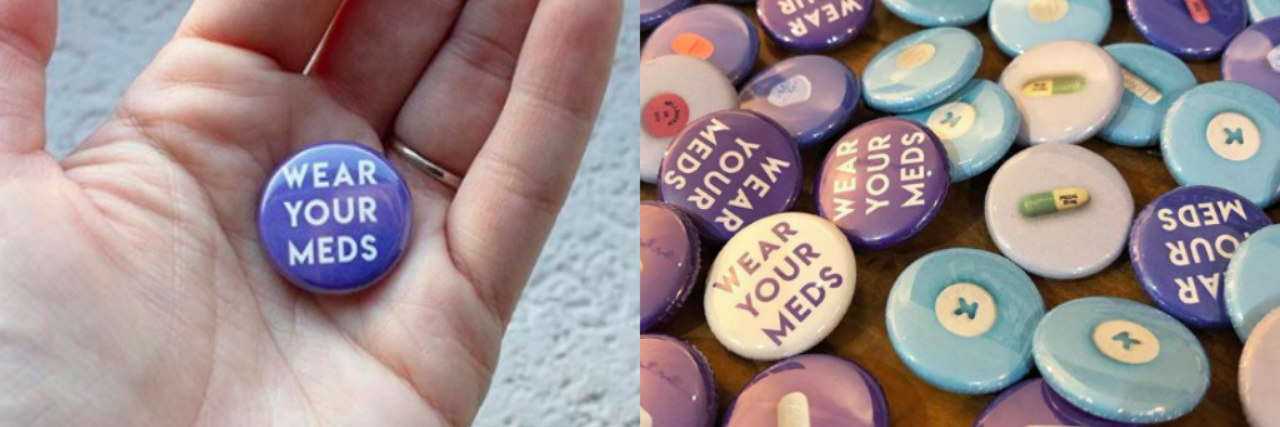New Medication Pins Allow You to 'Wear Your Meds on Your Sleeve'
Editor's Note
Please see a doctor before starting or stopping a medication.
New Yorker Lauren Weiss is tackling the stigma surrounding psychiatric medication one pin at a time.
Weiss’ project, called “Wear Your Meds,” allows customers to purchase wearable buttons with pictures of different pills on them. She hopes the pins will give people the opportunity to start a conversation about mental illness medication.
“When you ‘wear your heart on your sleeve,’ it means you’re being honest, open, and vulnerable,” the Wear Your Meds website reads. “When you wear your meds on your sleeve, you’re doing the same.”
Buttons with pictures of 14 different kinds of psychiatric medication are currently available for purchase. The medications include Zoloft, Lithium, Adderall, Ativan, Klonopin, Desyrel, Lexapro, Lamictal, Effexor, Cymbalta, Celexa, Wellbutrin, Xanax and Prozac.
All proceeds from sales of the buttons will be donated to the National Alliance on Mental Illness (NAMI), though Wear Your Meds is not affiliated with the nonprofit.
The inspiration for Wear Your Meds came from Weiss’ own experience with mental illness and psychiatric medication. When she was formally diagnosed with bipolar disorder II, she, like many, struggled with the decision to go on medication. On the Wear Your Meds site she wrote:
I told myself I could ‘manage’ without medication. I put up with manic upswings, deep depression, and days where I couldn’t tell what feelings were real or not throughout young adulthood, all so I could avoid being ‘one of those crazy people’ on meds. Going on meds meant failing. As an intense overachiever and nerd, that was simply not an option for me, so I spent a lot of time at Borders (RIP) reading pop psych books and trying to ‘cure’ myself.
When she began seeing a psychiatrist, she struggled with feeling like she had “failed,” but soon realized the meds were really helping.
“My brain felt clear for the first time. I was more creative, more productive, more myself because I wasn’t being derailed by mania or depression all the time,” she wrote. “It blew my mind that people actually lived a mentally stable life all the time. Why didn’t anyone tell me?”
Though medication is a big part of Weiss’ mental health treatment plan, she recognizes that everyone’s recovery journey is different.
I’m not a mental health or medical professional. I know that meds are not the answer for everyone, and I would never make any attempt to diagnose or medicate anyone. But my hope is that #WearYourMeds will normalize the mental illness conversation, let people tell their stories, and pay it forward for people who might be struggling to pursue professional help, from people who made that journey.
Do you want to wear your meds? To purchase a button, head to the Wear Your Meds website.
Header Image via Wear Your Meds Instagram

